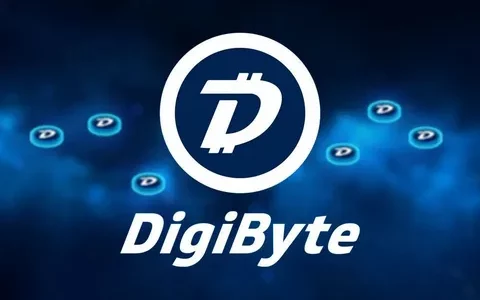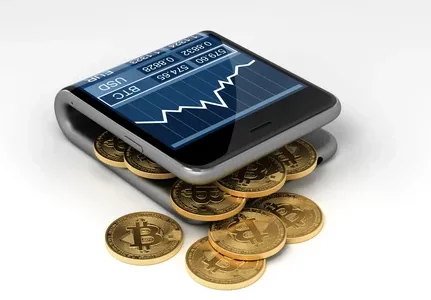Whether it is worth investing in cryptocurrency today is decided by everyone for themselves, but this is one of the popular directions. It is important to study all the nuances before investing in the crypt. Many people are interested in how much crypto should I buy, but this moment depends on what goal you want to get from your investment. If you just want to invest well, you should pay attention to a number of points. It is important to choose the exchange where to buy digibyte and where you will make the purchase to determine what goal you want to get. If this is a long-term investment, then various factors play a role here, besides, you should choose the currency that has already proven itself as reliable and profitable.
The peculiarity of buying cryptocurrencies
There are a lot of options for buying currency, but exactly how much you need it, you can only decide on your own. The total market capitalization of cryptocurrencies has recently exceeded the limits of two trillion. Many large companies invest huge amounts in cryptocurrency, for example, Tesla made a big splash when it imposed one and half $ 1000000000 on cryptocurrency. Also, some payment servers invest billions of dollars in bitcoin.
Interest from large entrepreneurs leads the currency to a significant price increase. You should understand how confident you are about which currency you choose, so you can determine how much you need to buy it. Today is very favorable for investing in cryptocurrency, but before choosing, you should rely on your personal knowledge, conduct research, read various reviews. For example, you can always conduct your own research, you can observe how the market is moving, technologies are developing, you can assess your own risk profile.
You should understand that choosing an exchange is a crucial moment, it is important to take into account a number of features. The exchange ChangeHero.io offers completely transparent conditions, guarantees excellent fast transactions.
How to make a profitable investment
You should always monitor the long-term performance of assets while not exceeding any points. First of all, the amount of currency depends on how much you know what is happening in the market, how much you can track every movement. For example, if you read daily reports, you will find out what state the crypto market is in, you will know which way to move. There are a lot of risks for currencies, it is important to find out which moments are the riskiest. Different coins and tokens have different technology, different use cases. Different assets react differently to trends in the economy as a whole.
Bitcoin is a good means of protection against inflation, statistics explain and predict the price of assets. You should also take into account the indicators of past assets, although they are not something that guarantees you income in the future.
In any case, you should be guided by a number of factors before making your choice, you should always remember that cryptocurrency is very volatile. If your distribution is too large, then it will be quite difficult for you to cope with price fluctuations. Cryptocurrency should be monitored around the clock, it does not take a day off. If you need to overcome stress, volatility, then you should organize recurring purchases. In any case, you should rely on your own experience or enlist the support of specialists in this field. It is important which currency you choose, how ready you are for the risks they all pose.
Cryptocurrency risks
Among the risks of cryptocurrencies, first of all:
- malicious software is singled out;
- hacker attacks;
- loss of a digital key;
- termination of the exchange;
- lack of a refund guarantee;
- high volatility;
- low liquidity;
- reduced mining profitability and other factors.
Software plays a huge role, it is necessary to evaluate them significantly before investing in cryptocurrency. These problems are always relevant for each type of currency. The main methods of scammers:
- viruses;
- ransomware;
- Trojan programs;
- link substitution;
- luring out confidential information;
- hacker attack.
Security also plays a big problem because bitcoin accounts are often attacked by intruders, they are hacked regularly. Thousands of bitcoins were lost after such a hacker attack, despite the fact that the cryptocurrency was able to restore its capabilities, and this moment did a lot of harm.
Legal problems arise due to the fact that there is no investor insurance, the cryptocurrency is not legally protected, that is, even some exchange platforms that are virtual banks. They can provide you with full protection.
Bitcoin has no owner, if your funds were stolen from a digital wallet, then you will not be able to confirm your ownership of these assets. The fact is that most currencies are completely anonymous, and such a high level of anonymity is a problem on the other hand. Sometimes it’s a plus, so you don’t register yourself as the owner, you don’t pay taxes, no one knows how much you bought. You provide yourself with complete confidentiality in case of any legal problems. On the other hand, you will not be able to confirm your identity.
One of the problems is also the bankruptcy and closure of the exchange when there are a lot of currency exchanges today. The main reason for closure and bankruptcy is low profitability.
It is necessary to invest large sums in order to work out the infrastructure, make the exchange popular, so many raise commission fees, but in order to support the sites, larger amounts are needed.
Features of choosing a cryptocurrency
There is also a moment of lack of guarantees for damages. There are no guarantees, insurance, the risks always fall on the owner of crypto wallets. An investor who trades on the stock exchange sometimes loses huge sums as a result of a cyber attack on the stock exchange.
As for volatility, this is a big variability of the exchange rate. Cryptocurrencies can change the value by 5-10% in a day, because of such strong volatility, investing is a complex process. You will not be able to track exactly how much you invest and how much you will win.
Bitcoins can both fall and rise in one day. With the growth of liquidity, activity decreases. There are arbitrage platforms that will monitor the rise and fall of prices, but today this moment remains dangerous. As for the liquidity on the new exchanges, there is too low a level of supply and demand. All this affects the value of the asset. If trading is carried out on an unknown exchange, then various problems may arise. The transition to a platform with a large trading turnover always becomes profitable. Many people note that cryptocurrency mining is becoming less popular today, it is decreasing before it is released, the advantages of mining are not so obvious, the benefit remains only when mining a token of young projects. Young currencies also bring less profit to date, their conclusions should be significantly evaluated. Before investing in such a currency, it is important to decide how much they are, how much you are willing to invest in cryptocurrency. You should take into account a number of risks and only then decide how profitable it is for you.









